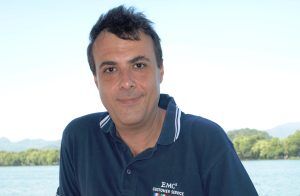Javier Alarcón
"For a Voice Data project, Voices is clear on the purpose of the recording."

Javier Marcos Alarcón: Voice Over Artist Finds New Purpose and Paycheck in Voice Data Projects
Voice over artist Javier Marcos Alarcón is no stranger to the mic, but recently, he discovered a new and rewarding side of the industry: Voice data recording.
Having started his voice over journey two years ago, Javier hadn’t landed many traditional projects, but found a fresh opportunity with voice data work through Voices.
What inspired this pivot?
“Honestly, I needed something paid, just to see if I’m good for anything,” Javier shares. After two years without much progress, the chance to contribute to Voice Data on Voices was a welcome change.
Was voice data work easier or harder than regular gigs?
“Emotions in the same phrase — more than one — at the beginning made me crazy! But practising it started to make me comfortable with them,” Javier admits. The challenge of expressing different emotions within a single sentence was real, but with practice, it became a rewarding learning curve.”
Support from Voices made a big difference.
“Voices always gives me exact and specific rules; it’s very simple to follow,” Javier says. Clear instructions and straightforward guidelines helped streamline the process, making it accessible even for those new to this type of work.
When it comes to equipment, Javier keeps things simple: a RODE NT USB microphone, Audacity for recording, and WavePad for editing.
“My studio is pretty simple. I hope that soon I can get more and more projects, leave my actual job (I’m tired of it), and get a better studio,” Javier shares with a smile.
Does Javier think his background gave him an edge?
“As a voice over artist, I’m prepared to give the emotions requested, for sure. I’ve been studying for seven years as a voice actor, specifically in dubbing, but the dubbing industry in Spain is very closed,” Javier explains.
Still, he believes that with practice, anyone passionate about voice work can succeed in voice data recording.
Financially, voice data projects have been a lifeline. “I only have compensation for these data works, so … In my case, it’s not complementary; it’s the only compensation I’ve had [until now],” Javier says.
He encourages other voice actors to try this path, highlighting three big perks: mastering emotional delivery, gaining valuable practice through high-volume projects, and contributing to the advancement of AI.
One of the most interesting surprises? “The emotions to give to the mic. Even in the same phrase, different emotions — it was a challenge for me,” Javier recalls.
With AI on the rise, Javier appreciates the transparency and safeguards Voices provides. “When some dataset is given to us, they always specify the purpose of recording, the non-cloning of our voice, etc.,” he notes, adding that this kind of clarity is reassuring for creatives.
Would Javier do it again? Absolutely. “Yes, for sure, the more jobs I do, the more perfection I reach,” he says.
Javier Marcos Alarcón’s story demonstrates that voice data recording is more than just a side gig. It’s a meaningful opportunity for voice actors to grow, learn and earn, all while being supported by a platform that values clear communication and respect for talent.